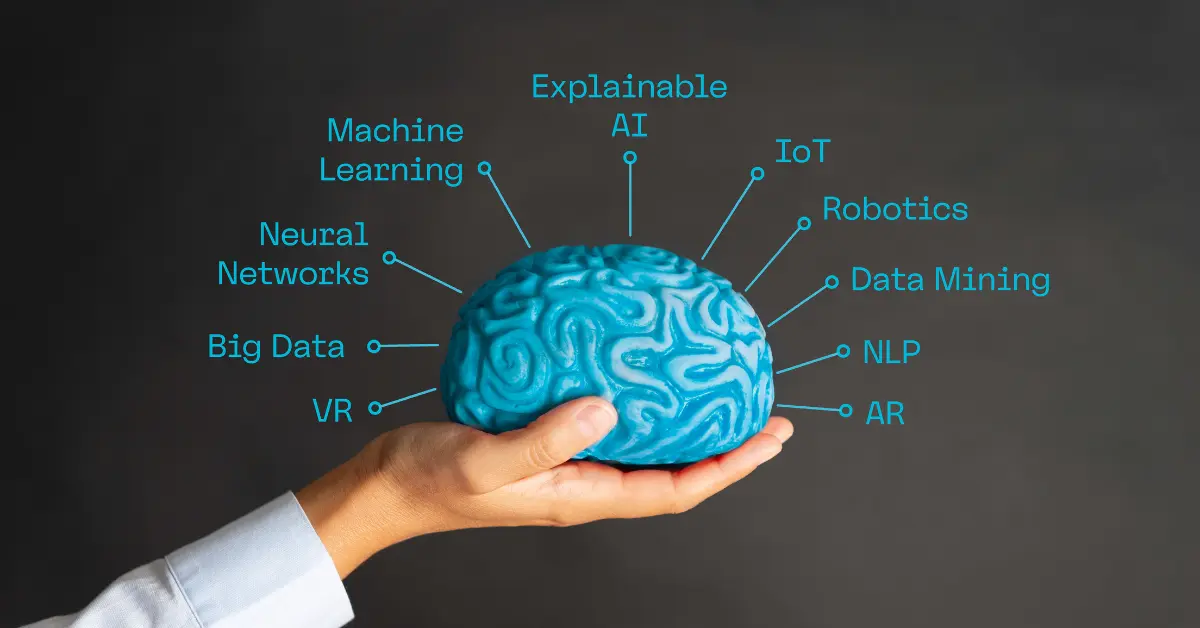In today’s digital age, Artificial Intelligence generates enormous amounts of data daily. From social media posts to online transactions, healthcare records to weather patterns – our world is being driven by data. According to IBM, 2.5 quintillion bytes of data are generated daily, which will continue growing exponentially.
However, simply collecting and storing data is not enough. We need advanced technologies and tools to truly analyze, process, and extract insights from this vast data to harness its power. Big Data and
Artificial Intelligence (AI) are two technologies that have gained immense popularity in recent years. While Big Data deals with storing and processing large and complex datasets, AI focuses on creating intelligent machines that can simulate human intelligence and perform tasks that typically require human cognitive abilities.
The convergence of big data and AI can potentially revolutionize the healthcare, transportation, finance, and marketing industries. In this blog post, we will delve deeper into this convergence, exploring how Big Data and Artificial Intelligence complement each other and impact our world.

Understanding Big Data
Big Data is a term used to describe large and complex datasets that cannot be processed using traditional data processing methods. The three V’s – volume, velocity, and variety – define Big Data:
Volume:
As mentioned earlier, we generate enormous amounts of data daily. With the rise of digital technologies, the volume of data will only increase exponentially. From structured data that can be easily organized and analyzed to unstructured data such as images, videos, and social media posts – the volume of data we produce is diverse and vast.
Velocity:
The speed at which data is generated makes it challenging to process and analyze it promptly. With the rise of the Internet of Things (IoT), where devices are connected and exchanging data in real time, the velocity of data is increasing at an unprecedented rate.
Variety:
As mentioned earlier, data comes in different forms and formats. With the rise of multimedia content, social media, and virtual reality, traditional databases can no longer store and process all data types. Hence, Big Data includes structured and unstructured data, making it a complex challenge to manage.
The ability to store, process, and analyze Big Data has allowed organizations to gain valuable insights and make data-driven decisions. According to a survey by New Vantage Partners, 62% of the organizations say they are seeing measurable benefits from their Big Data investments.
Understanding Artificial Intelligence
Artificial Intelligence is the branch of computer science that creates intelligent machines that can think and behave like humans. It involves the development of algorithms and models that can process data, learn from it, and make predictions or decisions based on the data.
AI aims to provide machines with human-like intelligence, reasoning, problem-solving, and perception abilities. Some of the techniques used in AI include
machine learning, natural language processing, and computer vision.
The potential of AI is enormous. It can transform industries, automate processes, and create new possibilities. According to a report by McKinsey, Artificial Intelligence could contribute $13 trillion to the global economy by 2030.
The Convergence of Big Data and Artificial Intelligence
Big Data and AI seem like a match made in heaven. AI’s processing power and advanced algorithms can make sense of the vast data collected through Big Data. Let’s look at how the convergence of Big Data and AI significantly impacts various industries.
1) Healthcare
The healthcare industry generates vast amounts of data, from electronic health records to medical images, wearable devices, and genetic data. With the help of AI-powered algorithms, healthcare providers can analyze this data to diagnose diseases, predict health outcomes, and even develop personalized treatment plans for patients.
Big Data and AI are also revolutionizing the pharmaceutical industry. Companies can use Big Data analytics to find patterns in medical data and use it to identify potential drug candidates. With the help of AI, drug discovery, development, and testing processes are becoming faster and more efficient.

2) Finance
The finance industry is highly data-driven, and the convergence of Big Data and AI is helping financial institutions make sense of complex financial data and extract actionable insights. AI-powered algorithms are also used for fraud detection and prevention in financial transactions.
Moreover, AI-based chatbots and virtual assistants are being used to improve customer service, automate financial processes, and provide personalized financial advice to customers. This has reduced the workload for financial professionals and enhanced customer satisfaction.
3) Marketing
With the rise of social media and e-commerce, companies are collecting vast amounts of data on consumer behaviour, preferences, and purchase history. With the help of Artificial Intelligence-powered tools, marketers can analyze this data to gain insights into their target audience, create personalized marketing campaigns, and improve customer retention.
AI-based tools can also help companies analyze customer sentiment, social media posts, and online reviews to understand how their brand is perceived in the market. This information can then be used to improve products and services, develop targeted marketing strategies, and boost brand reputation.
4) Transportation
The transportation industry uses Big Data and Artificial Intelligence to improve efficiency, reduce costs, and ensure passenger safety. With AI-powered systems, transportation companies can analyze traffic patterns, weather data, and other factors to determine the most efficient routes for their vehicles, reducing travel time and fuel costs.
In the aviation industry, AI-powered predictive maintenance systems monitor aircraft performance and detect potential maintenance issues before they become significant problems. This improves the safety and reliability of flights and helps airlines save on maintenance costs.
Conclusion
Big Data and Artificial Intelligence are powerful technologies transforming industries and revolutionizing our lives and work. The convergence of these two technologies has opened up endless possibilities, from personalized healthcare to more efficient transportation. However, it is also essential to address the concerns surrounding the use of big data and
AI and ensure the responsible and ethical use of these technologies for the betterment of our society. With constant advancements and innovations in these fields, it is safe to say that we are just scratching the surface of what Big Data and Artificial Intelligence can achieve together.
FAQs
Q1) What is the connection between Big Data and Artificial Intelligence?
Big Data fuels AI by delivering the vast and complex datasets that AI algorithms need to learn and make decisions. In turn, AI helps analyze and make sense of Big Data, making it a perfect match for each other.
Q2) What are some challenges associated with Big Data and AI?
Some
challenges associated with big data and AI include the need for specialized skills and knowledge, ensuring data privacy and security, and ethical concerns about using AI in decision-making processes.
Q3) How is Big Data different from traditional data processing methods?
Big Data deals with processing large and complex datasets that cannot be handled using traditional databases and data processing methods. Big Data requires advanced tools and technologies to store and process data.
Q4) Can anyone use Big Data artificial intelligence, or is it limited to large organizations?
More prominent organizations tend to have more data and resources, making adopting Big Data and AI technologies easier. However, with the rise of cloud computing and AI-powered tools, even small and medium-sized organizations can now leverage the power of Big Data and Artificial Intelligence.
Q5) Are there any ethical concerns about using artificial intelligence in decision-making?
AI algorithms learn from the data they are fed, and if the data is biased, it can lead to biased decisions. This raises concerns about the fairness and transparency of AI-empowered decision-making processes. Hence, it is crucial to have proper regulations and ethical frameworks in place for the responsible use of Artificial Intelligence.




